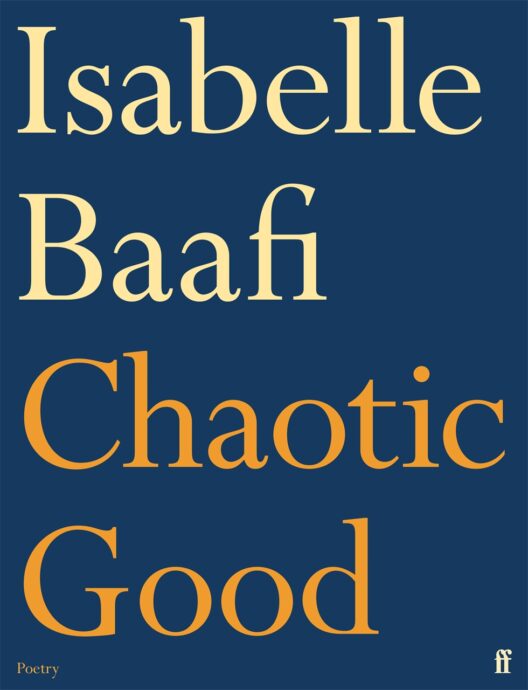Chaotic Good
Poetry Book Society Recommendation, Summer 2025
A piercing debut about how we are made, how we get lost and how we find new selves.
Framed by the story of escape from a toxic marriage, Chaotic Good focuses on the incremental ways in which power accumulates, shifts and is relinquished within both home and community. Incisive, rigorous and artful, Isabelle Baafi reminds us of the importance of self-determination, and how, when we feel most eroded, we might discover what we need deep within ourselves: ‘This time and every time, I was the code I needed to find my way back.’
Praise for Chaotic Good
‘With sure formal dexterity and an exciting precision of lyrical imagining, Baafi explores the complicated pathways of suspicion and uncertainty, and – most vitally – the simultaneous possibilities of threat and beauty, mistrust and hope, darkness and joy. The knowing narrative detail is charged as strongly with ideas as with feeling, resulting in a highly original fusion of resistance and compassionate determination.’ —Jane Draycott
‘In this wise-hearted and deft debut, Baafi gets to the grain of family, inheritance, the grit of growing up and the grappling to become oneself.’ —Rachel Long
‘Isabelle Baafi’s Chaotic Good is a debut of amazing endurance. Its formal pressures create a kind of kaleidoscopic intensity that – with each turn of the chamber – brings newly beautiful and painful shapes into focus.’ —Will Harris
‘Chaotic Good offers beautiful, urgent poems to remake our breaking world. From the playground all the way to the marriage bed, these redemption songs return to heal and emancipate.’ —alice hiller
